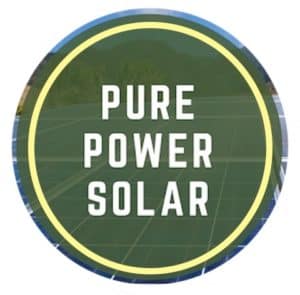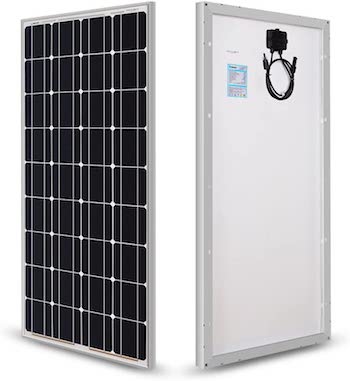We all love to get out of the house every now and then to enjoy some family time or alone time. It is a great way to create wonderful memories and have fun experiences in our lives. While most people are entirely new to the camping lifestyle, some of us have been RV travelers and campers for many years.
RV is an abbreviation for Recreational Vehicle and is a motor vehicle or trailer designed for accommodation. Different types of RVs are suited for many purposes; however, they all include living quarters with all the essentials and are used for camping, road trips, and other recreational purposes.
A constant power supply is perhaps the most important factor to consider when planning a camping or road trip. If you plan on going in an RV, a solar panel is a must-have for you. RVs come with appliances and electronics that are designed for relaxation and entertainment- and you can keep the power on for as long as you want, thanks to solar panels.
If you like adventure and enjoy camping, road trips, or any other kind of recreational activity- and often go in an RV, you would agree that one of the worst things that could happen to you is a power outage. You don’t want to be out in the middle of nowhere on vacation with nothing to power your appliances.
And if this is your first time going on such a trip and you are looking for some tips to help you get sorted and secured on power, this article will serve as a guide to what kind of solar panel is best for your RV.
This guide is based on thorough market research. If you are looking for the best solar panel for your RV, this guide is perfect for you.
Solar panels vary in cost, efficiency, and design. While there are many brands of solar panels out there, not every type is suitable for all kinds of RVs. Overall, monocrystalline is the most efficient solar panel type, therefore making it the best option.
The kind of solar panel you need for your RV should be:
- Easily installed
- Durable
- Efficient
Choosing the Best Solar Panel for Your RV
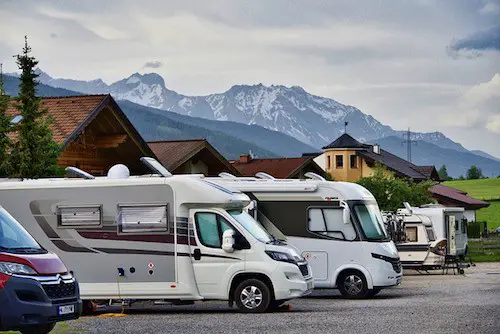
It is expected that you will have a hard time choosing the exact solar panel for your needs, but this guide will make that experience less difficult. There are several variations to consider when looking to buy the right solar panel for your RV. Let’s jump in and find out what you should look for.
Portability
The weight and size of the solar panel matters; you need a solar panel that is fairly lightweight. You don’t want your RV running on extra weight, especially if you have to add more panels at some point.
A heavy, bulky solar panel setup along with poor installation is a recipe for disaster, especially when you have to drive long hours at high speeds.
There are several options for a lightweight solar panel kit that allows for easy installation. We’ll be getting into some examples later on in this post.
Installation
For beginners as well as veteran RV travelers, a solar panel setup that you can easily install will avoid unnecessary stress from using complicated systems.
If you’re looking for more information specifically on solar panel installation for your RV, I have another article that will show you the ideal number of panels to have, as well as the various components of a solar panel kit, which includes a charge controller, inverter, and other crucial pieces of equipment required to complete the entire setup. You can find the article here.
Durability
How long will the panel last? This is a very good question to ask when considering a solar panel for your RV. If you will be traveling in your RV very often, it is recommended that you get a solar panel that will last a long time. You don’t want to make frequent replacements. Solar panels can last for decades (25+ years), so higher-quality panels will bring you longevity.
Areas with a high-level wind concentration can affect the durability of your solar panels. You want a solar panel that will stand the constant test from strong wind and hail, as well as other environmental conditions.
Efficiency
All solar panels are built to convert energy input from the sun into output energy. But not all solar panels do the conversion with high efficiency.
A highly efficient solar panel charges batteries much faster than an average performing panel.. Efficient panels will bring more power to your battery along with a compact surface area on the roof of your vehicle. Since RVs don’t have as much space for solar panels as a typical household does, it’s important to consider a highly efficient solar panel array for your RV.
What You Need to Know Before Installing Solar Panels for Your RV
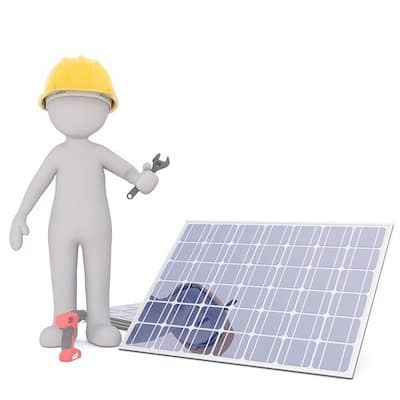
Before you start planning for your next vacation or road trip in your RV, there are a few key areas you should focus on regarding installation.
- Size varies: Simply put, not all RVs are the same., They vary in size, shape, length, and purpose. Solar panels are not exactly one size fits all either, and you might need to select one based on specific requirements.
- You may be surprised to find that a standard or more economical solar panel performs proportionately to an expensive, high-efficiency one when modified to suit certain conditions. In this case, a higher price point does not necessarily translate to better performance.
- There may be a need to add extra panels depending on your usage and consumption. If your RV comes with powerful appliances that suck power at a fast rate, you will need to generate more power to your battery or solar generator. Refrigerators, microwaves, and small air conditioners all require a lot of electricity, so more panels will significantly reduce the risk of running out of battery power for these appliances.
- There are two mounting options for your vehicle – tilted and horizontal. You can choose whether you want a permanently horizontal setup or you can get something called adjustable tilt mount brackets. These allow you to tilt your panels up or have them horizontal. See an example of a Renogy tilt mount bracket here on Amazon. When parked, it is recommended that you tilt your panels towards the equator. This allows your panels to harness the most energy possible coming from the sun as opposed to having them placed horizontally. The sun’s rays are the closest to the equator, which will bring the most power to the panels. Once you’re on the move, you can bring the panels back to their horizontal position, securing them on your roof.
Types of Solar Panels
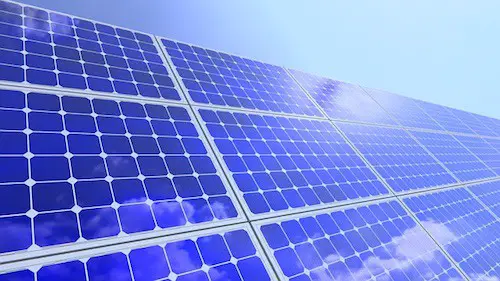
Solar cells are made from a semiconducting material that converts light into electricity. They make use of silicon as a semiconductor during the solar cell manufacturing process.
There are three types of solar panels available on the market today. They are Monocrystalline, Polycrystalline (also known as multi-crystalline), and Amorphous or Thin-film. These solar panels are different in how they are designed and produced. They also vary in appearance, performance, costs, and installations.
Why does this matter when choosing the type of solar panels to go with your RV? Well, if this is your first RV experience, it is advised that you consider an option that isn’t overly complicated and that allows for an easy installation.
Each type of solar panel also has its own exceptional features, advantages, and disadvantages. The type of solar panel suitable for your RV will depend on the features of your RV and its appliances.
Monocrystalline Solar Panel
Monocrystalline panels are the most expensive solar panels, but for all the right reasons. They are more efficient compared to the other types.
The solar cells of monocrystalline panels are made from a different silicon crystal. It is quite costly for manufacturers to extract these crystals.
However, monocrystalline solar panels last much longer than amorphous solar panels. Amorphous panels utilize their maximum capabilities up to about ten years, and then their output declines from there. Monocrystalline and polycrystalline panels will last for over 25 years if they are maintained properly. If you install mono or polycrystalline solar panels on your RV, you can be certain you will be able to use them for twice as long as amorphous (thin-film) panels.
Polycrystalline Solar Panels
The second type is polycrystalline, which is not as expensive as monocrystalline solar panels. Their cells are manufactured from silicon remains, unlike the monocrystalline solar panels, which are made from a single silicon crystal. The manufacturing process is simpler and does not cost manufacturers as much money to produce as the mono panels do.
Let’s not forget the number of watts, which is probably one of the most important things to consider when it comes to solar panels. Polycrystalline solar panels with the proper set up are strong enough to charge your battery or batteries to consistently provide electricity to almost any kind of appliance in your RV for an extended period of time. However, you might need additional panels if you are going to use a larger volume of electronics and appliances.
Amorphous (Thin-Film) Solar Panels
These solar panels are also known as thin-film and are more recent than the monocrystalline and polycrystalline solar panels. Though they still have silicon cells, they are much thinner and more flexible. Thin-films have solar cells with a gummy backing that can pass for a tape.
However, they are lower in efficiency and cheaper compared to the other two. If you are looking for a solar panel that is not too costly, thin-films offer fair value for your money. But I must warn you not to expect too much because on average they are half as efficient as monocrystalline panels.
Monocrystalline and polycrystalline solar panels cost more than amorphous. Still, they are better in terms of efficiency and durability. The thin-film may not be such a bad idea if your RV has minimal appliances that do not draw too much power.
A refrigerator can be used in this circumstance with the proper set up because they draw 150W of power at any given time. However, it may be ideal to only power a refrigerator and possibly some smaller devices/electronics like phones, lights, etc. with a thin-film-powered battery because it will take longer to recharge the battery versus utilizing mono or polycrystalline panels.
You can save on cost with thin-film panels if you know how to regulate power usage from the appliances in your RV. Also, they all take about the same amount of effort to install and use.
Related Read: Inergy Flex 1500 Portable Solar Generator
The Best Solar Panels for Your RV
There are many solar panels out there that serve many purposes, but which do you need for your RV? There are some top brands like Renogy, WindyNation, and ACOPower that have built and sustained their reputation over the years, and they have given us amazing products such as the Flexible RV Solar Panel and the WindyNation Solar Panel, among a few others.
Below are some of the top-rated solar panels in the market. It is important to note that most of these solar panels are user friendly and can be purchased at fair prices.
Renogy 100-Watt Monocrystalline Solar Panel Kit
Renogy is a well-established company in the field of portable and mountable solar technology. Aside from the fact that they make really efficient solar panels, this product also comes with a loaded kit to ensure you have everything you need to set up as a first-time user.
The Renogy 100-watt monocrystalline solar panels are exceptionally portable. There are a lot of huge solar panel setups, and they require high-end equipment for installation. Renogy panels are lightweight and easy to mount on RVs, boats, etc.
Renogy panels weigh less than 20 pounds and are ideal for road trips in the RV.
The additional items that come with your purchase include:
- Mounting brackets
- Charge controller
- MC4 connectors
- 10AWG tray cables and a 20-foot MC4 adapter kit
- Replacement panels with a 25-year warranty
You can find this system on shopsolarkits.com here (I make a small commission for every sale). They also sell a 200W kit and 400W kit, each using the same 100W panels.
I should state that Renogy panels and kits come with all you need with the exception of batteries. Nonetheless, the Renogy 100-Watt Monocrystalline solar panel is preferred for the following reasons:
- High-efficiency solar cells
- Ruggedness
- Competitive pricing
- Options to purchase pre-made kits along with the solar panel(s)
HQST 100 Watt 12 Volt Polycrystalline Solar Panel
With this solar panel, you don’t have to worry about how to install it on your RV. Direct instructions are provided on the user guide to ensure that first-timers can mount the panels on any roof successfully.
The HQST 100 watt 12-volt polycrystalline solar panel has a durable aluminum base. It can be converted from portable panels to panels that can be mounted on the roof of your RV. One good thing about aluminum framing is that it allows for proper ventilation and keeps your panels from overheating due to extensive sun exposure.
Every component is waterproof, from the junction box to the MC4 connectors. You don’t have to worry about the safety of your panels during strong winds or harsh weather conditions, which is always a nice feature to have.
Find the HQST panel here on amazon.com (I make a small commission on each sale).
WindyNation – 100W Polycrystalline Solar Panel Kit
This solar panel is perfect for RVs, camping, boats, and cabins. It can charge a 12-volt battery with an output of 350Wh per day and can produce free, renewable energy, depending on the availability of sunlight.
You can expand the system if you need more power. The WindyNation PWM charge controller can handle multiple solar panels (four 100W panels for 12V systems and eight 100W panels for 24V systems).
You can make adjustments to the functions so it can adapt to various conditions. You can also monitor the voltage, amperage, load, and temperature of your panel with the bright LCD screen on the side of the charge controller.
This panel is preferred by users for the following reasons:
- Affordability
- Adaptability
- Accessible charge controller
Check out the WindyNation kit here on amazon.com.
ACOPOWER 100W Polycrystalline Solar Panel
This solar panel features two top-level foldable polycrystalline solar panels.
It comes with MC4 connectors, which permits multiple connections and allows you to improve usage if you need more power. You don’t need to spend more money on extra components as the ACOPOWER solar panel kit comes with all the necessary hardware.
Lastly, it features a premium-grade charge controller created to deal with issues like reverse charging, overcharging, and faulty connection. It may be more expensive than the usual solar panels, but it’s worth the cost for the following reasons:
- Compactness
- Hard protective casing
- Intuitive setup process
Check out the ACOPOWER solar panel kit here on amazon.com.
Go Power GP-PSK-130 Portable Monocrystalline Solar Panel
This panel features a compact, foldable, and tough design and a 25-year warranty. The panel is specially designed for RVs, camping, and road tours. The Anderson-style battery charging connector makes swapping and charging accessories very easy.
Its portable quality makes for easy transportation. You can effortlessly fold the panel and place it in its case. If you move around in your RV a lot, you probably like to keep everything in one place and very light. This solar panel allows you to travel light and compact.
As you can see from the image, this panel is foldable, so if you want to use it elsewhere besides on your RV alone, you have the option to do so with ease.
The Go Power 130 boasts a strong output, contributing to a fast battery recharge. The following reasons are why users prefer the Go Power 130 monocrystalline panel:
- Portability
- Higher output compared to the standard 100W panel
- Adjustability
Find this product here on amazon.com.
Eco-Worthy 100W Monocrystalline Solar Panel
If you are not planning to break the bank for your RV, this solar panel may be a perfect choice. This solar panel provides you with good value for your money at just under $80 for a 100W panel.
This solar panel is also waterproof and made from monocrystalline cells. Mounting the panel is also made easy with the handy mounting eyelets on the bottom frame of each panel. You won’t have much difficulty setting it up even if you are totally new to solar panels.
Besides the solar panel, the Eco-Worthy solar power base kit contains a reliable charge controller with charge and load indicators. This makes it easy for you to mark the key readings and make adjustments where there is a need.
Check out the Eco-Worthy 100W panel here on amazon.com.
Final Thoughts
The three basic features to consider when looking for a solar panel for your RV include efficiency, ease of installation, and durability. You would still need to match these three factors with your budget, and that’s where the cost comes in.
In case you run into a bit of a problem estimating how many solar panels you need for your RV, keep in mind that a 100–watt solar panel generates about 30 amp-hours per day. This will help you figure just how many solar panels you need for your RV.
